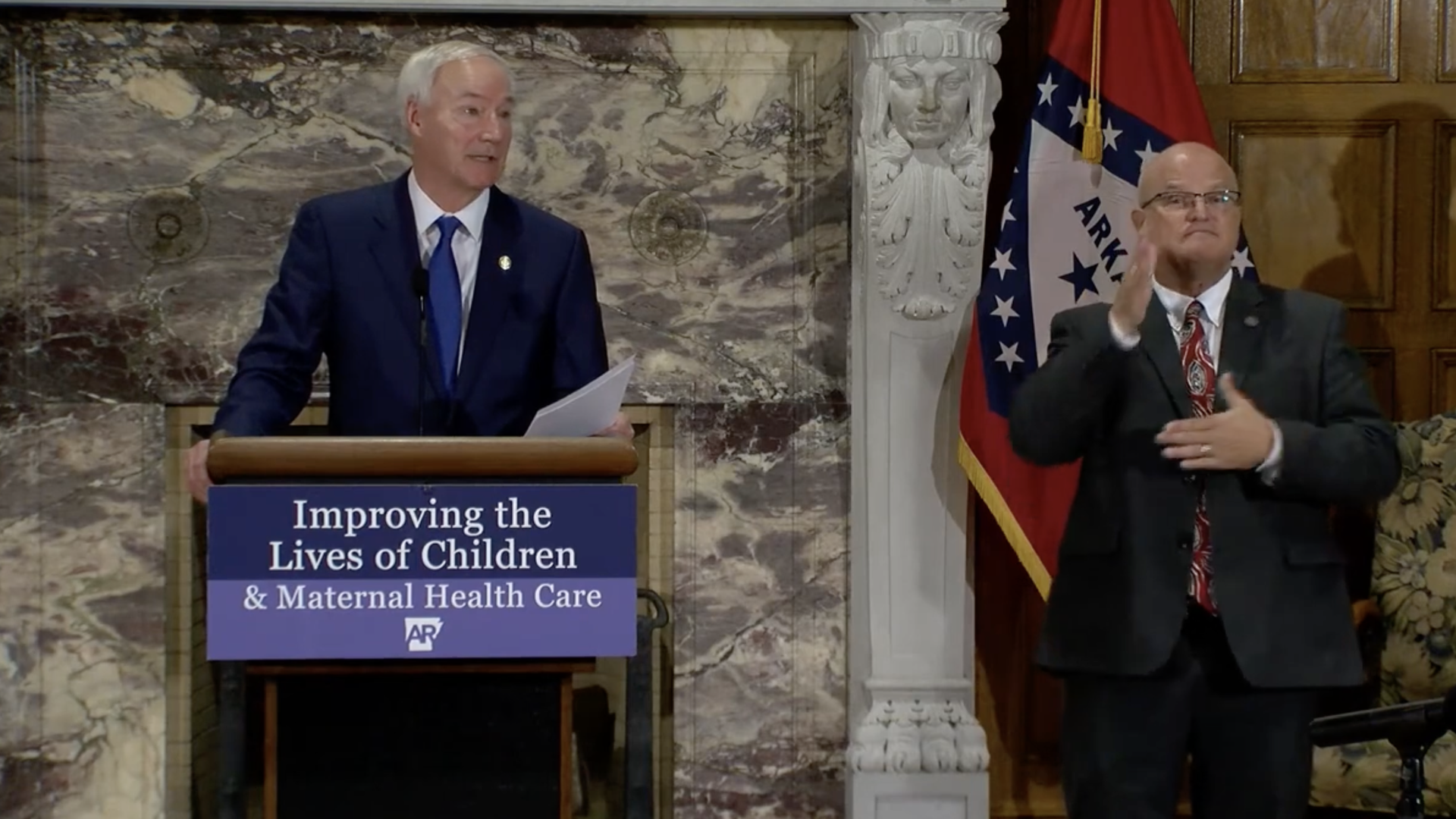Arkansas Gov. Asa Hutchinson announces maternal health initiatives
Add Axios as your preferred source to
see more of our stories on Google.

Screenshot of Gov. Asa Hutchinson's press conference.
Arkansas Gov. Asa Hutchinson announced Tuesday that he's asking the federal government for money to expand programs geared toward maternal and infant health.
State of play: Arkansas has the highest known rate of maternal mortality (pregnancy-related deaths) in the U.S., about double the national average of states with available data, according to the CDC.
- Although the teen birth rate has steadily declined, the state still had the second-highest teen birth rate in 2020 with 27.8 births per 1,000 females ages 15-19, the CDC reported.
- Arkansas has the fourth-highest infant mortality rate, and the percentage of babies born at a low weight is on the rise.
What's happening: The state requested a waiver from the Biden administration to expand maternal health care services at rural hospitals through ARHOME, Arkansas' Medicaid program.
Hutchinson announced the following initiatives during a news conference Tuesday:
1. Expanding Department of Human Services' home visitation program for high-risk pregnancies and new mothers.
- The cost will be $18.9 million, including $5.5 million from the state.
- DHS expects this to take effect in January 2023.
2. Expanding Medicaid for pregnant people to cover all health services, including behavioral health, instead of services that solely relate to pregnancy.
- The cost will be $1.2 million, including $350,000 from the state.
- DHS expects this to take effect in January 2023.
Yes, and: Hutchinson is asking the state legislature to support $1.7 million to extend foster parent pay to nontraditional guardians, such as relatives or provisional caretakers, and to increase monthly pay for traditional foster parents.
In total, this will cost $10.2 million a year.
- He also plans to put $350,000 toward increasing training for the 450 home visitors who check on at-risk children as part of a health department program.
Between the lines: "We know there will be an increased number of at-risk pregnancies in the coming year, and that is likely because we are reducing abortion in the state of Arkansas," Hutchinson said.
The big picture: States with restrictive abortion laws in the wake of the overturning of Roe v. Wade generally have higher maternal mortality rates, less access to maternal care and worse outcomes for infants, Axios' Caitlin Owens writes.
- Experts say those states' adoption and foster care programs are not prepared for a baby boom.
